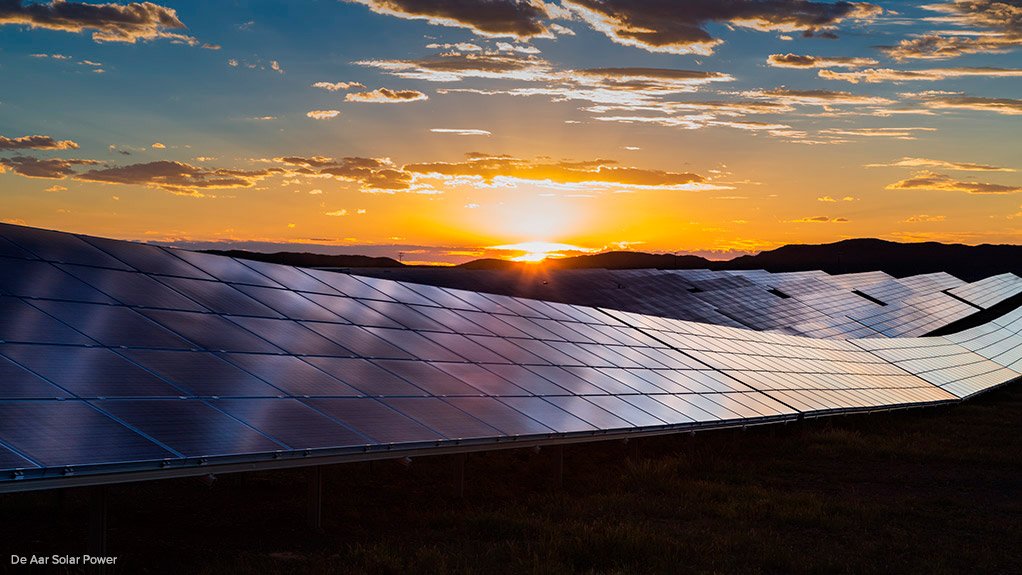Long delay in dividend flows to renewables-linked community trusts impeding effectiveness
The long lag between the establishment of community trusts that own a portion of the independent power producer (IPP) projects procured through South Africa’s renewables procurement programme and the flow of dividend income into these trusts has been identified in a new research report as a major impediment to the effectiveness of these trusts.
The report, produced by Intellidex for FirstRand, estimates the projected dividend flows from projects procured, to date, under the Renewable Energy Independent Power Producer Procurement Programme (REIPPPP) will be about R27-billion over the 20-year life of the projects. On average, community trusts hold between 9% and 12% equity in these REIPPPP-linked facilities.
However, lead researcher Dr Zoheb Khan found that the reliance of trusts solely on dividends, which took up to eight years to begin flowing, had left trustees “demotivated and communities apathetic”.
“All the trusts participating in this research are reliant on one source of income – dividends from the IPPs they have a stake in. However, in every case, during the first seven to eight years of the trusts’ lives, dividends are spent either wholly or mostly on servicing debt,” the report states, adding trusts are, thus, left dormant with very little work done.
Khan adds that repayment terms for community trust equity, which is usually financed by loans from development finance institutions, are also often far too onerous.
“Some trusts have found innovative ways to work around the constraints imposed by needing to service very large debts and are well-regarded in their communities. But many others have not found ways to do so. This, combined with practices such as outsourcing of labour, hiring external consultants and skimping on community engagement, has resulted in ill-will within communities.”
The report recommends that solutions be found, in future procurement rounds, to ensure that income flows into trusts sooner. After a seven-year disruption, the fifth bid window of the REIPPPP is currently under way and a sixth bidding round is scheduled for before year-end.
“This could be achieved by refinancing trust loans from development banks, diverting socioeconomic development funds into the trusts, and/or capacitating trusts in fundraising and investment. More importantly, less onerous loan terms are required for trusts that will be established in new projects.”
The report also includes several recommendations for ensuring that the potential of the community-trust structure is more effectively deployed, including:
- Funders providing IPPs and the trusts they establish with more support, especially during the setup phase;
- implementing stringent selection criteria for trustees to avoid a situation where incapable individuals are elected;
- ensuring, where possible, that all trustees are sourced locally;
- the IPP Office establishing an intermediary, capacity-building nongovernmental organisation to work with trusts in developing skills and capacity and ensuring good governance;
- having regular reports to the host local authorities on the trust’s plans and expenditure;
- encouraging, through the IPP Office, multilateral collaboration between different trusts and between different IPPs in their respective economic development work;
- providing enough time in bidding rounds for adequate trust preparation;
- establishing dedicated resources within IPPs to manage community work and relationships with various stakeholders;
- maintaining open channels of communication with communities; and
- ensuring that IPPs are part of local energy security by enabling municipal IPP procurement.
Trusts, the report concludes, hold a lot of potential, which is currently being squandered.
“The problems we identify are not insurmountable – the majority would be relatively easy to fix. If we can find sufficient will to work past the obstacles, I think the trusts could play a major role in ensuring that we do not leave communities behind in the transition to a greener economy,” Khan concludes.
Article Enquiry
Email Article
Save Article
Feedback
To advertise email advertising@creamermedia.co.za or click here
Announcements
What's On
Subscribe to improve your user experience...
Option 1 (equivalent of R125 a month):
Receive a weekly copy of Creamer Media's Engineering News & Mining Weekly magazine
(print copy for those in South Africa and e-magazine for those outside of South Africa)
Receive daily email newsletters
Access to full search results
Access archive of magazine back copies
Access to Projects in Progress
Access to ONE Research Report of your choice in PDF format
Option 2 (equivalent of R375 a month):
All benefits from Option 1
PLUS
Access to Creamer Media's Research Channel Africa for ALL Research Reports, in PDF format, on various industrial and mining sectors
including Electricity; Water; Energy Transition; Hydrogen; Roads, Rail and Ports; Coal; Gold; Platinum; Battery Metals; etc.
Already a subscriber?
Forgotten your password?
Receive weekly copy of Creamer Media's Engineering News & Mining Weekly magazine (print copy for those in South Africa and e-magazine for those outside of South Africa)
➕
Recieve daily email newsletters
➕
Access to full search results
➕
Access archive of magazine back copies
➕
Access to Projects in Progress
➕
Access to ONE Research Report of your choice in PDF format
RESEARCH CHANNEL AFRICA
R4500 (equivalent of R375 a month)
SUBSCRIBEAll benefits from Option 1
➕
Access to Creamer Media's Research Channel Africa for ALL Research Reports on various industrial and mining sectors, in PDF format, including on:
Electricity
➕
Water
➕
Energy Transition
➕
Hydrogen
➕
Roads, Rail and Ports
➕
Coal
➕
Gold
➕
Platinum
➕
Battery Metals
➕
etc.
Receive all benefits from Option 1 or Option 2 delivered to numerous people at your company
➕
Multiple User names and Passwords for simultaneous log-ins
➕
Intranet integration access to all in your organisation




















